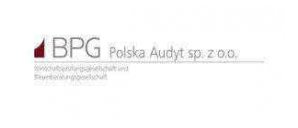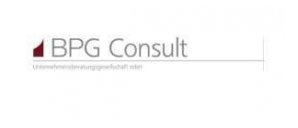
fuel costs for a company
How to settle fuel costs for a company car in Poland?
A company car is an indispensable tool in many industries, while in others it is used only occasionally. For years, the use of a company car has been controversial and has been the cause of many disputes between companies and the tax authorities. This is due to the high level of complexity of Polish legal regulations or the ambiguity of the language used, which creates problems with their interpretation as well as misunderstandings and differences in opinions/conclusions between etrepreneurs and the tax authorities.
Interpretation problems
Making an employer's car available to an employee generates tax costs. Mostly, company cars are used for work, but also many employees use them for private purposes as well. The controversies and different understanding of the regulations led to a dispute over fuel between entrepreneurs and the tax authorities regarding the income earned by an employee as a result of using a company car for private purposes. According to Article 12 para. 2a of the Personal Income Tax Act:
The monetary value of the gratuitous benefit that an employee is entitled to due to the use of a company car for private purposes is set at:
1) 250 PLN per month - for cars with engine capacity up to 1600 cm3;
2) 400 PLN per month - for cars with a capacity of more than 1600 cm3.
In the case of using a company car for private purposes for a part of the month, the value of the benefit is determined for each day of using the car for private purposes in the amount of 1/30 of the above specified amounts.
According to employers, the above amounts include all costs necessary to use and drive a car, i.e: insurance, all inspections, repairs, tire replacements, as well as fuel. However, the the tax authority in Poland did not agree to include fuel and claimed that the funds allocated for fuel create separate income from the employment relationship, and therefore it is necessary to pay tax on this income. The problem arose because no one knew how to determine how much fuel was used to perform official duties and how much for private purposes. Entrepreneurs tried to make their own calculations here, however, the tax authority rejected them, claiming that they are incorrect.
Court battle
Discrepancies in the interpretation and the dispute that arose between the tax authorities and enterprises led to the fact that one of the companies decided to take matters into its own hands and lodged a complaint with the Provincial Administrative Court in Wrocław. After careful consideration of the case, a judgement was issued, according to which the costs of fuel were also included in the flat-rate income. This means that entrepreneurs were declared to be right.
Along the way, judgments issued by other administrative courts also appeared. All decisions in favour of the enterprises, but the judgments were not legally binding. It was only the Supreme Administrative Court that issued a final judgment in which it stated that the flat rate includes all fees that are related to the use of the car, i.e. insurance, repairs and also fuel.
What does this mean?
Thanks to the court decision, it can be clearly stated that fuel is a part of flat-rate income. This is a big breakthrough for companies as it generates tax savings. Because fuel costs are settled in a flat-rate manner, and you do not have to pay tax on the value of fuel from company cars that are used also for private purposes. In addition, it will be much easier for entrepreneurs to be able to settle accounts, which will reduce the costs of accounting. It is worth noting that companies will be able to apply for a refund of overpaid tax.
Is the struggle hopeless?
The Polish legal system, in contrast to Anglo-Saxon countries, does not make court rulings binding on lower courts. In Poland, the judge is subject to legal provisions, and therefore the verdict on flat-rate income and fuel costs issued by the Supreme Administrative Court is not binding for the tax authorities. The only hope is that the tax authorities will resolve the dispute in favor of taxpayers.
return











